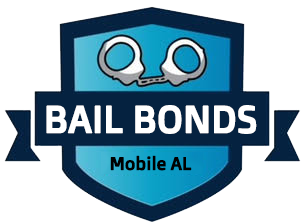
Going through the process of an arrest is a foreign experience to most and if it is your first time dealing with this, not only is the booking process and detention a lot but then understanding how bonds work can also be overwhelming. To help anyone understand the most common terms when it comes to bail bonds, check out the explanations below.
Bail Bond
A bail bond is a contract that negotiates the defendants release from jail in exchange for an asset. While most of the time this is money, such as the case with cash bonds and surety bonds, it can also be things like property or other collateral that one can use as leverage to ensure return to the court for subsequent hearings.
Forfeiture
Forfeiture happens when a defendant is released on bond but then either flees or just fails to show up to court with no communication as to why they are absent. Normally bonds are eventually refunded after all appearances have been made but, that money will be forfeited to the courts when the defendant does not show because it breaks the main condition of the bond.
Indemnitor
An indemnitor is essentially a co-signer who is willing to be financially responsible to make sure the defendant appears in court. As with co-signing anything, this is a really big deal and it’s so important that the person who signs as an indemnitor trusts that defendant completely because the consequences can be financially disastrous.
Surety
Surety bonds are the types of bonds that you would get from a bail bondsman. They work somewhat like an insurance company where you pay a percentage upfront (around 10%) and then the rest is covered by the bail bondsman so long as the defendant follows all bail conditions and arrives to all hearings.
Bail Conditions
Bail or bond conditions are a set of rules that a judge has for the defendant that have to be followed in order to be in compliance. These can be simple conditions such as avoiding drugs and alcohol to more intensive such as having to report for drug tests or classes. Either way, it is essential that they are followed or the defendant may be brought back to jail in violation.
Collateral
Collateral is essentially the non-monetary way to leverage your assets to pay for a bond. This can be things such as property or vehicles or anything of a high enough value to meet the estimated cost of a bond.
Defendant
The defendant is what a person who is being arrested becomes once they are officially charged of a crime. They will be called this throughout all court proceedings and up until the trial or hearing concludes with either a judgement or the case is dropped.
These are probably the most basic and common terms that you may come across but hopefully with this quick rundown, it make you or your loved ones feel more confident in communicating and understanding bail bonds.



